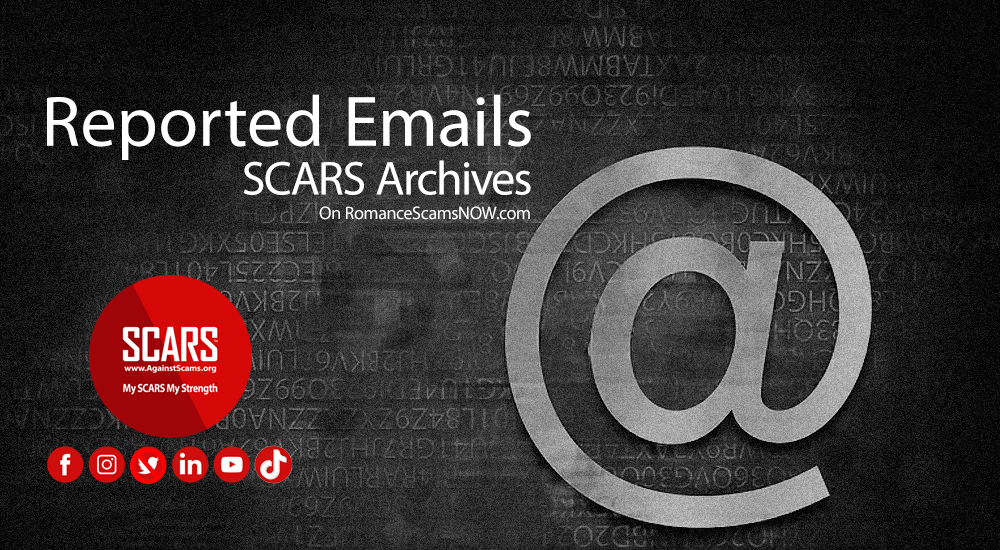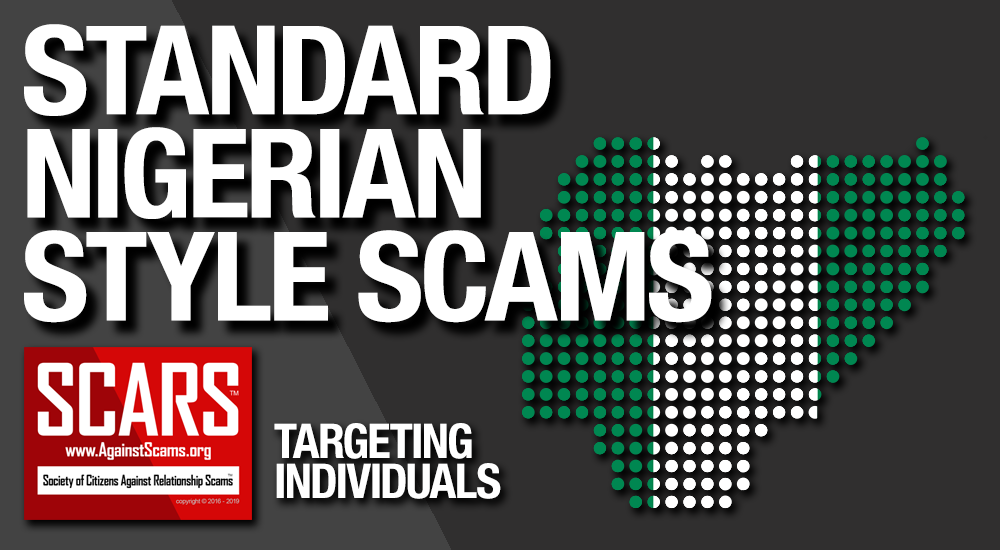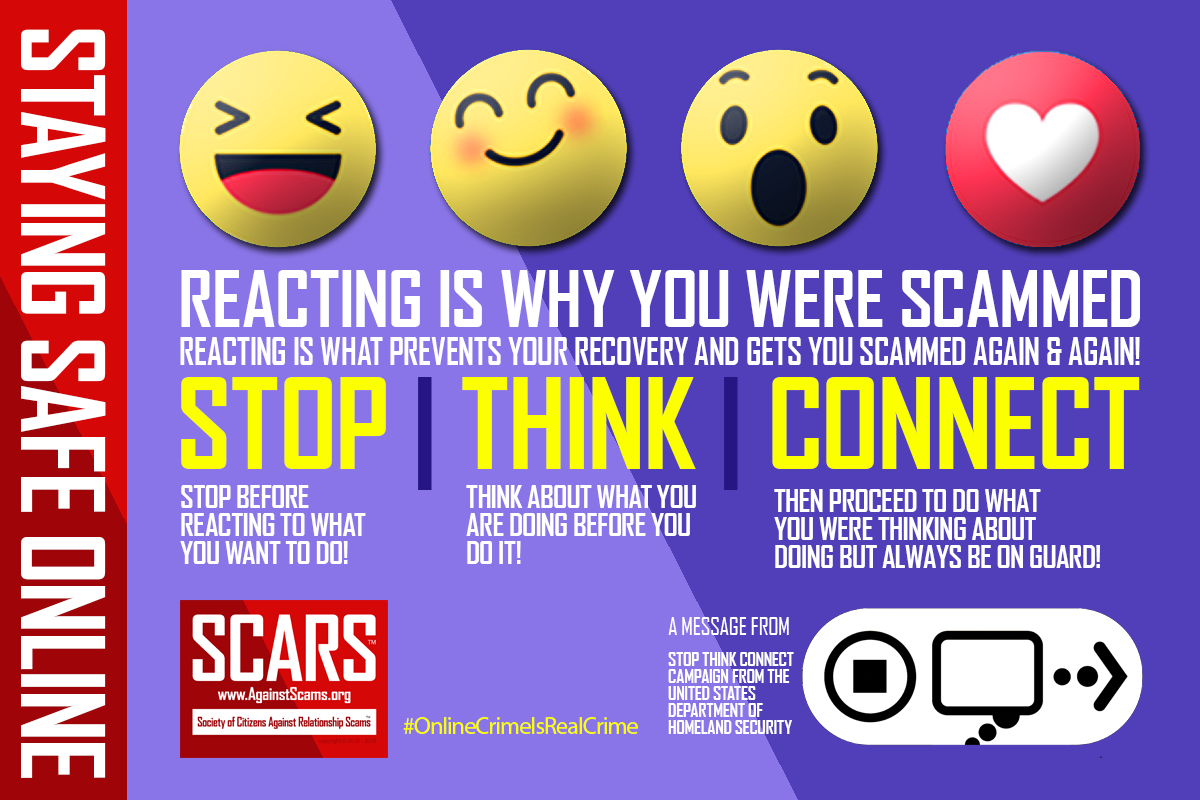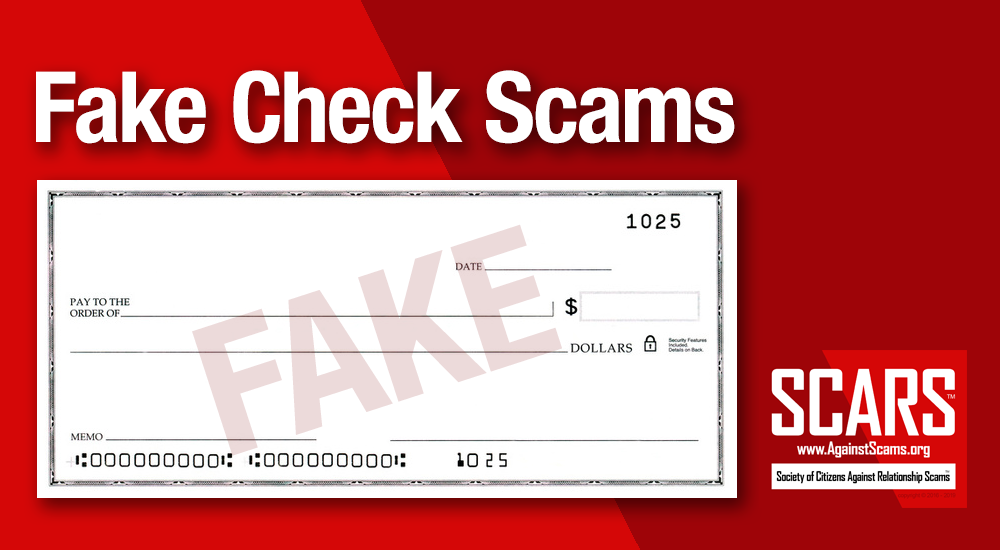
SCARS Institute’s Encyclopedia of Scams™ Published Continuously for 25 Years

SCARS™ Guide: Standard Nigerian Scams & Online Fraud
This guide is an introduction. Please review our other guides and articles for more detailed information about all the forms of scams and how victims can recover from them.
Internet Financial Scams
We hear from people every day who have been defrauded for hundreds or thousands of dollars by Internet contacts they thought were their friends or loved ones.
Internet scams are attempts by con artists (cybercriminals) to convince you to send them money. In Nigeria and elsewhere in Africa, these scams are also referred to as 419 scams.
The most common scams involve someone allegedly in Nigeria who is in some sort of trouble, ranging from detention to extortion or hospitalization. Inevitably, the sender is making an appeal for money. If this is someone you have not met personally, we urge you to stop corresponding with whoever sent the message, and please do not send any money to Nigeria or anywhere else.
Scammers Troll The Internet
In many cases, scammers troll the Internet for victims and spend weeks or months building a relationship. Once they have gained their victim’s trust, the scammers create a false situation and ask for money. Scammers can be very clever and deceptive, creating sad and believable stories that will make you want to send them money.
Before You Send Money
Before you send money, check to see if you recognize any of the following signs, and realize that you may be a potential victim of a scam:
- You only know your friend or fiancé online and may never have met in person.
- Photographs of the scammer show a very attractive person and appear to have been taken at a professional modeling agency or photo studio. If they provide you with a copy of their passport or visa, you can always contact the U.S. embassy in the country where the passport or visa was issued to verify the validity of the document.
- The scammer’s luck is incredibly bad – he/she is in a car crash, or arrested, or mugged, or beaten, or hospitalized. Close family members are dead or unable to assist. Sometimes, the scammer claims to have a young child overseas who is ill or hospitalized.
- You have sent money for visas or plane tickets but they can’t seem to make it to their destinations, citing detention by immigration officials, or other reasons that prevent them from traveling.
- Beware of anyone who requests funds for a BTA, or Basic Travel Allowance, as a requirement to depart another country for the United States. There is no such thing as a BTA. In other cases, your Internet friend will claim to need a travel allowance, or travel money, to be able to travel to the United States. Again, there is no such requirement under U.S. law.
- The scammer claims to have been born and raised in the United States but uses poor grammar and spelling indicative of a non-native English speaker.
- Although the scammer may claim to be in Nigeria, he or she may ask that the money be sent to an account in another country. Alternatively, the scammer may state he or she is in a third country but request that funds be sent to Nigeria.
- The scammer may even claim to be contacting you from a U.S. Embassy, where your partner, business associate, or friend is being detained pending payment of some type of fee. U.S. embassies do not detain people.
Internet scammers are using social networking sites to find victims. The scammers obtain a person’s login information, change his/her profile to make it appear as if the person is in trouble, then contact the person’s friends via those websites asking them to send money to help. To avoid falling victim to such a scam, always be suspicious of anyone asking for money through the Internet, including via social networking sites, and always verify a supposed friend’s circumstances by speaking to him or her directly. ALWAYS protect your online identity by securing your logins and passwords.
Adoption Scams
Adoption scams are another type of scam to avoid. The perpetrators of child adoption fraud often claim to be indigent parents unable to care for a child or members of the clergy working at an orphanage seeking a good home for a child. Americans should be very cautious about sending money or traveling abroad to adopt a child from an orphanage they have only heard about through emails. A new twist in the conventional email adoption scam is that once the victim suspects fraud and breaks off communication with the scammers, a new email message will arrive claiming to be from a police agency. These fictitious policemen will offer to recover the victim’s lost money. The scammers will then ask for a “refundable” fee to open the investigation or court files.
Lotto Scams
In addition, do not believe that you have won a lottery you never entered or inherited money from someone you’ve never met or heard of.
Do not believe any offers that require a fee to be paid upfront.
Do not provide personal or financial information to businesses you don’t know or haven’t verified.
Investigation Scams
There are many so-called scam investigators out there. Most of them are fake or scams. Some are even real companies but that offer false hope to victims taking their money for nothing but a perfunctory review that anyone with a bit of familiarity with scams could do for nothing. While there are real investigative companies out there, do not waste good money trying to investigate a scammer – this almost never delivers.
In some cases, a victim will be contacted by the “police” from a West African country claiming they will investigate and arrest the fraudster – recovering the money in the process – they just need a small fee in advance. These are all scams – no real law enforcement agency will charge you a fee to investigate a crime.
Coronavirus Crisis Scams
Another trap scammers are now using with great effectiveness is to play on people’s fears during the Coronavirus outbreak. Be aware that you need to be especially careful about claims of emergencies from people you do not know, and about potential claims of cures or treatments – always consult your doctor before buying anything of this nature.
All Of These Scams Have One Thing In Common
All of these scams have one thing in common – they contain requests for money. Con artists can be very creative and very determined. Be skeptical. Do not send anyone money unless you are certain that it is a legitimate request – even if you think you know the person well based on your Internet correspondence.
If You Believe You Are The Victim Of An Internet Scam:
- Do not send more money. Unfortunately, any money that you might already have sent is probably not recoverable from the scammers. There may be other options through reputable money recovery services in very specific cases.
- End all communication with the scammer immediately, rather than attempt resolution directly. If you feel threatened, contact your local police at once. Do not attempt to personally recover the funds lost.
- Report the matter immediately to:
- to the SCARS Cybercrime Data Network™ on www.Anyscam.com
- to the U.S. Federal Bureau of Investigation (FBI) Internet Crime Complaint Center, a partnership among the Federal Bureau of Investigation (FBI), the National White Collar Crime Center (NW3C), and the Bureau of Justice Assistance (BIA), at www.ic3.gov.
- If the scam originated through a particular social media platform (such as Facebook, Instagram, etc.), notify the administrators of that website.
TAGS: SCARS, Important Article, Information About Scams, Anti-Scam, Scams, Scammers, Fraudsters, Cybercrime, Crybercriminals, Romance Scams, Scam Victims, con artists, cybercriminals, Internet Financial Scams, Nigerian Scams, Online Fraud,
SCARS™ Editorial Team
Society of Citizens Against Relationship Scams Inc.
A Worldwide Crime Victims Assistance Nonprofit Organization
Visit: www.AgainstScams.org
Contact Us: Contact@AgainstScams.org
PLEASE SHARE OUR ARTICLES WITH YOUR FRIENDS & FAMILY
HELP OTHERS STAY SAFE ONLINE – YOUR KNOWLEDGE CAN MAKE THE DIFFERENCE!
The Latest SCARS Posts:
FIND MORE SCAM NEWS
«SCAMCRIME.COM»
JOIN US ON FACEBOOK
«CLICK HERE»
END
MORE INFORMATION
– – –
Tell us about your experiences with Romance Scammers in our
« Scams Discussion Forum on Facebook »
– – –
FAQ: How Do You Properly Report Scammers?
It is essential that law enforcement knows about scams & scammers, even though there is nothing (in most cases) that they can do.
Always report scams involving money lost or where you received money to:
- Local Police – ask them to take an “informational” police report – say you need it for your insurance
- U.S. State Police (if you live in the U.S.) – they will take the matter more seriously and provide you with more help than local police
- Your National Police or FBI « www.IC3.gov »
- The SCARS|CDN™ Cybercriminal Data Network – Worldwide Reporting Network on « www.Anyscam.com »
This helps your government understand the problem, and allows law enforcement to add scammers on watch lists worldwide.
– – –
To learn more about SCARS visit « www.AgainstScams.org »
Please be sure to report all scammers
on « www.Anyscam.com »
Disclaimer:
SCARS IS A DIGITAL PUBLISHER AND DOES NOT OFFER HEALTH OR MEDICAL ADVICE, LEGAL ADVICE, FINANCIAL ADVICE, OR SERVICES THAT SCARS IS NOT LICENSED OR REGISTERED TO PERFORM.
IF YOU’RE FACING A MEDICAL EMERGENCY, CALL YOUR LOCAL EMERGENCY SERVICES IMMEDIATELY, OR VISIT THE NEAREST EMERGENCY ROOM OR URGENT CARE CENTER. YOU SHOULD CONSULT YOUR HEALTHCARE PROVIDER BEFORE FOLLOWING ANY MEDICALLY RELATED INFORMATION PRESENTED ON OUR PAGES.
ALWAYS CONSULT A LICENSED ATTORNEY FOR ANY ADVICE REGARDING LEGAL MATTERS.
A LICENSED FINANCIAL OR TAX PROFESSIONAL SHOULD BE CONSULTED BEFORE ACTING ON ANY INFORMATION RELATING TO YOUR PERSONAL FINANCES OR TAX RELATED ISSUES AND INFORMATION.
This content and other material contained on the website, apps, newsletter, and products (“Content”), is general in nature and for informational purposes only and does not constitute medical, legal, or financial advice; the Content is not intended to be a substitute for licensed or regulated professional advice. Always consult your doctor or other qualified healthcare provider, lawyer, financial or tax professional with any questions you may have regarding the educational information contained herein. SCARS makes no guarantees about the efficacy of information described on or in SCARS’s Content. The information contained are subject to change and are not intended to cover all possible situations or effects. SCARS does not recommend or endorse any specific professional or care provider, product, service, or other information that may be mentioned in SCARS’s websites, apps, and Content unless explicitly identified as such.
The disclaimers herein are provided on this page for ease of reference. These disclaimers supplement and are a part of SCARS’s websites Terms of Use.
Legal Notices:
All original content is Copyright © 1991 – 2020 Society of Citizens Against Relationship Scams Inc. (D.B.A SCARS) All Rights Reserved Worldwide & Webwide. Third-party copyrights acknowledge.
SCARS, SCARS|INTERNATIONAL, SCARS, SCARS|SUPPORT, SCARS, RSN, Romance Scams Now, SCARS|WORLDWIDE, SCARS|GLOBAL, SCARS, Society of Citizens Against Relationship Scams, Society of Citizens Against Romance Scams, SCARS|ANYSCAM, Project Anyscam, Anyscam, SCARS|GOFCH, GOFCH, SCARS|CHINA, SCARS|CDN, SCARS|UK, SCARS|LATINOAMERICA, SCARS|MEMBER, SCARS|VOLUNTEER, SCARS Cybercriminal Data Network, Cobalt Alert, Scam Victims Support Group, are all trademarks of Society of Citizens Against Relationship Scams Inc.
Contact the law firm for the Society of Citizens Against Relationship Scams Incorporated by email at legal@AgainstScams.org
-/ 30 /-
What do you think about this?
Please share your thoughts in a comment below!
Table of Contents
- Internet Financial Scams
- Scammers Troll The Internet
- Before You Send Money
- Adoption Scams
- Lotto Scams
- Investigation Scams
- Coronavirus Crisis Scams
- All Of These Scams Have One Thing In Common
- If You Believe You Are The Victim Of An Internet Scam:
- Ethereum ETHM Token Trap and Pig Butchering Scams – 2026
- New U.S. Law – S.3643 – 118th Congress – Will Dramatically Impact Scammers and Terrorists – 2026
- How Scam Survivors Can Survive Valentine’s Day – 2026
- U.S. Veterans Benefits Scams – 2026
- New AI Voice Cloning Phone Scams – 2026
- An Essay on Justice and Money Recovery – 2026
LEAVE A COMMENT?
Thank you for your comment. You may receive an email to follow up. We never share your data with marketers.
Recent Comments
On Other Articles
- on Love Bombing And How Romance Scam Victims Are Forced To Feel: “I was love bombed to the point that I would do just about anything for the scammer(s). I was told…” Feb 11, 14:24
- on Dani Daniels (Kira Lee Orsag): Another Scammer’s Favorite: “You provide a valuable service! I wish more people knew about it!” Feb 10, 15:05
- on Danielle Delaunay/Danielle Genevieve – Stolen Identity/Stolen Photos – Impersonation Victim UPDATED 2024: “We highly recommend that you simply turn away form the scam and scammers, and focus on the development of a…” Feb 4, 19:47
- on The Art Of Deception: The Fundamental Principals Of Successful Deceptions – 2024: “I experienced many of the deceptive tactics that romance scammers use. I was told various stories of hardship and why…” Feb 4, 15:27
- on Danielle Delaunay/Danielle Genevieve – Stolen Identity/Stolen Photos – Impersonation Victim UPDATED 2024: “Yes, I’m in that exact situation also. “Danielle” has seriously scammed me for 3 years now. “She” (he) doesn’t know…” Feb 4, 14:58
- on An Essay on Justice and Money Recovery – 2026: “you are so right I accidentally clicked on online justice I signed an agreement for 12k upfront but cd only…” Feb 3, 08:16
- on The SCARS Institute Top 50 Celebrity Impersonation Scams – 2025: “Quora has had visits from scammers pretending to be Keanu Reeves and Paul McCartney in 2025 and 2026.” Jan 27, 17:45
- on Scam Victims Should Limit Their Exposure To Scam News & Scammer Photos: “I used to look at scammers photos all the time; however, I don’t feel the need to do it anymore.…” Jan 26, 23:19
- on After A Scam, No One Can Tell You How You Will React: “This article was very informative, my scams happened 5 years ago; however, l do remember several of those emotions and/or…” Jan 23, 17:17
- on Situational Awareness and How Trauma Makes Scam Victims Less Safe – 2024: “I need to be more observant and I am practicing situational awareness. I’m saving this article to remind me of…” Jan 21, 22:55
ARTICLE META
Important Information for New Scam Victims
- Please visit www.ScamVictimsSupport.org – a SCARS Website for New Scam Victims & Sextortion Victims
- Enroll in FREE SCARS Scam Survivor’s School now at www.SCARSeducation.org
- Please visit www.ScamPsychology.org – to more fully understand the psychological concepts involved in scams and scam victim recovery
If you are looking for local trauma counselors please visit counseling.AgainstScams.org or join SCARS for our counseling/therapy benefit: membership.AgainstScams.org
If you need to speak with someone now, you can dial 988 or find phone numbers for crisis hotlines all around the world here: www.opencounseling.com/suicide-hotlines
A Note About Labeling!
We often use the term ‘scam victim’ in our articles, but this is a convenience to help those searching for information in search engines like Google. It is just a convenience and has no deeper meaning. If you have come through such an experience, YOU are a Survivor! It was not your fault. You are not alone! Axios!
A Question of Trust
At the SCARS Institute, we invite you to do your own research on the topics we speak about and publish, Our team investigates the subject being discussed, especially when it comes to understanding the scam victims-survivors experience. You can do Google searches but in many cases, you will have to wade through scientific papers and studies. However, remember that biases and perspectives matter and influence the outcome. Regardless, we encourage you to explore these topics as thoroughly as you can for your own awareness.
Statement About Victim Blaming
SCARS Institute articles examine different aspects of the scam victim experience, as well as those who may have been secondary victims. This work focuses on understanding victimization through the science of victimology, including common psychological and behavioral responses. The purpose is to help victims and survivors understand why these crimes occurred, reduce shame and self-blame, strengthen recovery programs and victim opportunities, and lower the risk of future victimization.
At times, these discussions may sound uncomfortable, overwhelming, or may be mistaken for blame. They are not. Scam victims are never blamed. Our goal is to explain the mechanisms of deception and the human responses that scammers exploit, and the processes that occur after the scam ends, so victims can better understand what happened to them and why it felt convincing at the time, and what the path looks like going forward.
Articles that address the psychology, neurology, physiology, and other characteristics of scams and the victim experience recognize that all people share cognitive and emotional traits that can be manipulated under the right conditions. These characteristics are not flaws. They are normal human functions that criminals deliberately exploit. Victims typically have little awareness of these mechanisms while a scam is unfolding and a very limited ability to control them. Awareness often comes only after the harm has occurred.
By explaining these processes, these articles help victims make sense of their experiences, understand common post-scam reactions, and identify ways to protect themselves moving forward. This knowledge supports recovery by replacing confusion and self-blame with clarity, context, and self-compassion.
Additional educational material on these topics is available at ScamPsychology.org – ScamsNOW.com and other SCARS Institute websites.
Psychology Disclaimer:
All articles about psychology and the human brain on this website are for information & education only
The information provided in this article is intended for educational and self-help purposes only and should not be construed as a substitute for professional therapy or counseling.
While any self-help techniques outlined herein may be beneficial for scam victims seeking to recover from their experience and move towards recovery, it is important to consult with a qualified mental health professional before initiating any course of action. Each individual’s experience and needs are unique, and what works for one person may not be suitable for another.
Additionally, any approach may not be appropriate for individuals with certain pre-existing mental health conditions or trauma histories. It is advisable to seek guidance from a licensed therapist or counselor who can provide personalized support, guidance, and treatment tailored to your specific needs.
If you are experiencing significant distress or emotional difficulties related to a scam or other traumatic event, please consult your doctor or mental health provider for appropriate care and support.
Also read our SCARS Institute Statement about Professional Care for Scam Victims – click here to go to our ScamsNOW.com website.



















![SCARS™ Insight: Social Engineering Email Scams - Red Flags [Infographic] Anti Scam infographic Anti-Scam-infographic](https://romancescamsnow.com/wp-content/uploads/2014/02/Anti-Scam-infographic.png)




send news